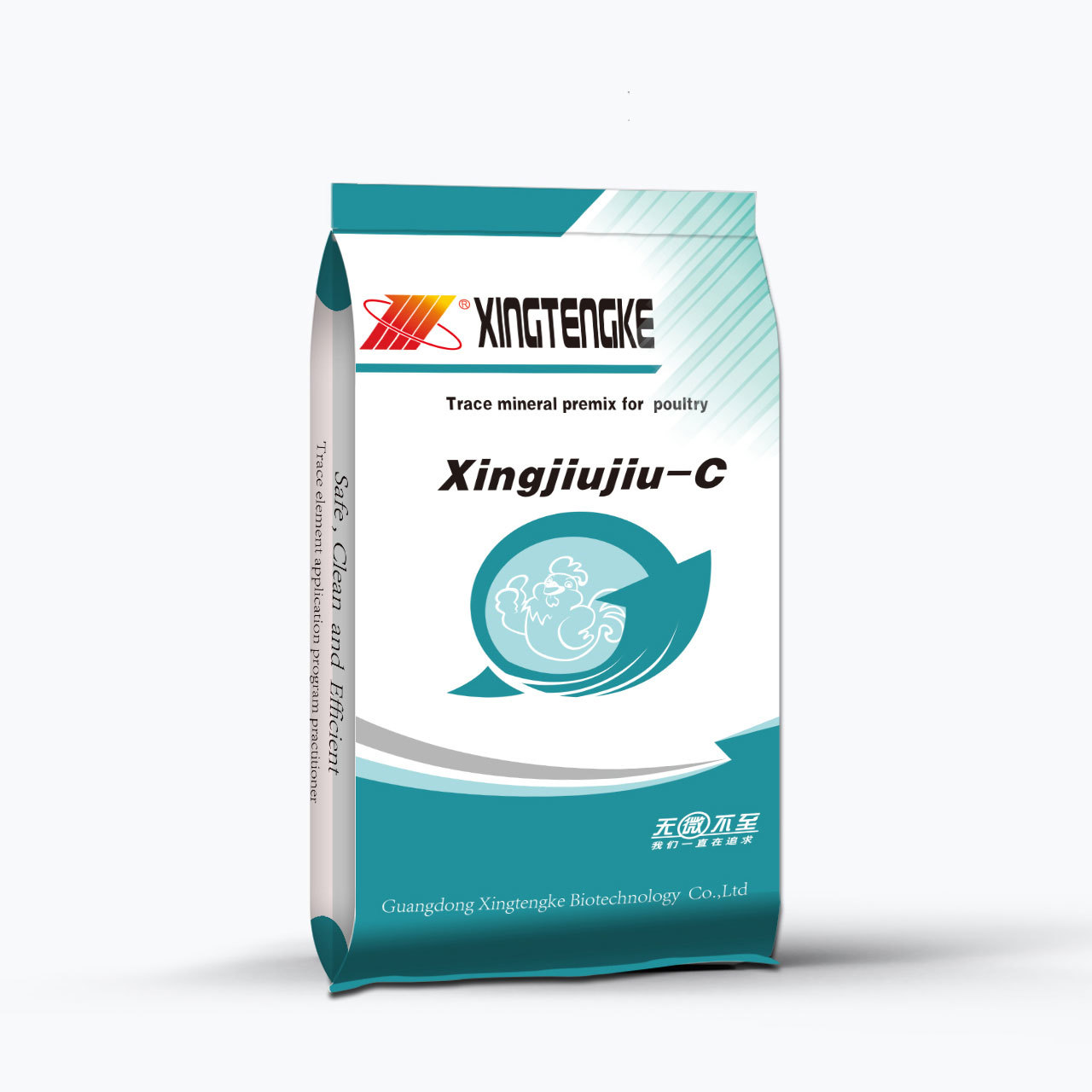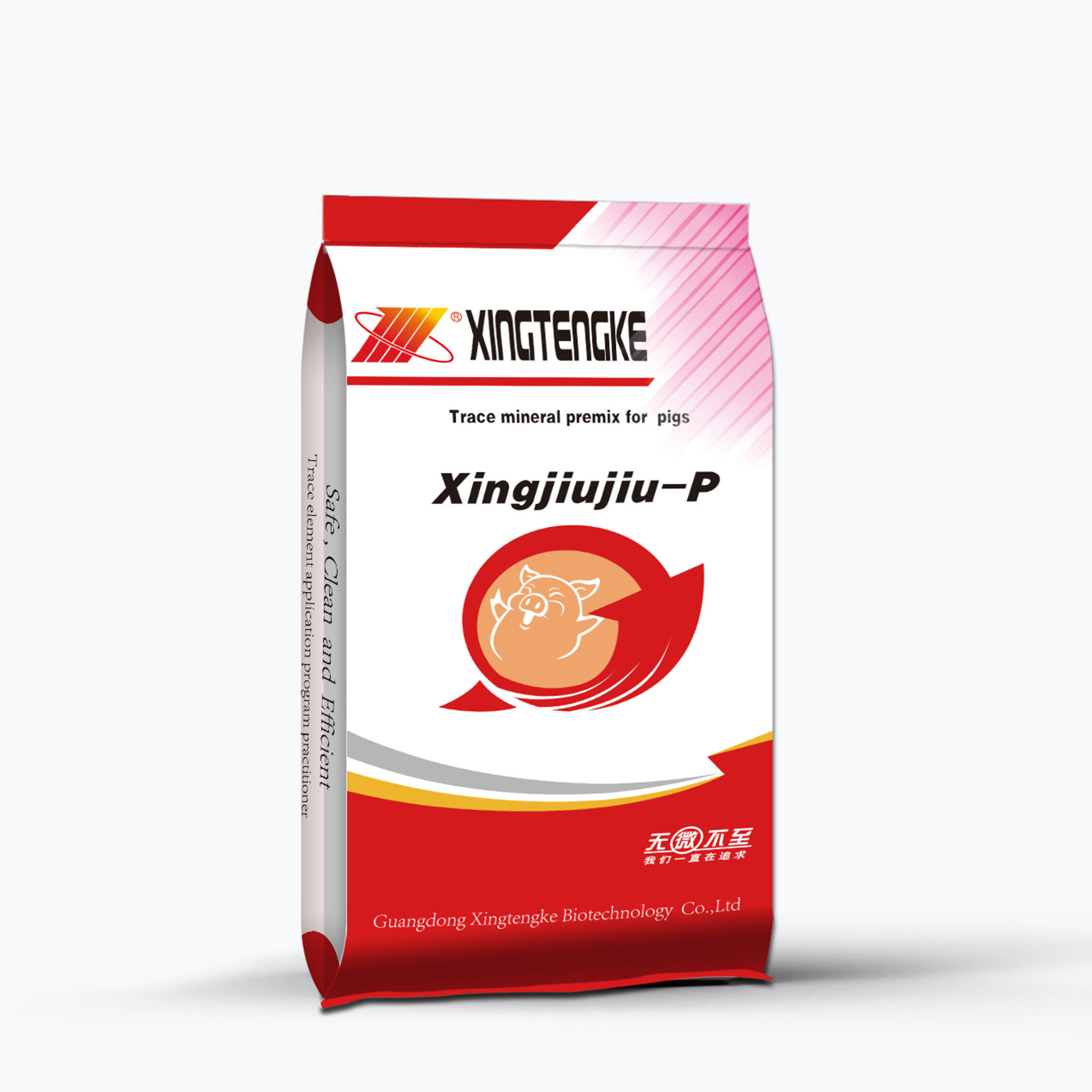Enhancing Swine Performance: The Magic of Trace Minerals
Release time:
2025-09-01 15:56
Source:
Enhancing Swine Performance: The Magic of Trace Minerals
Table of Contents
- Introduction to Trace Minerals in Swine
- The Importance of Trace Minerals in Swine Nutrition
- Key Trace Minerals Essential for Swine Health
- Zinc: The Immunity Booster
- Copper: The Growth Enhancer
- Manganese: The Reproductive Health Guardian
- Selenium: The Antioxidant Champion
- Iron: The Blood Builder
- Understanding Trace Mineral Deficiency in Swine
- Strategies to Optimize Trace Mineral Intake
- Benefits of Incorporating Trace Minerals into Swine Diets
- Common Questions About Trace Minerals in Swine
- Conclusion
Introduction to Trace Minerals in Swine
Trace minerals are crucial components in the diets of swine, influencing their growth, immune function, and reproductive health. As livestock producers, understanding the vital role of these minerals can help us enhance our herds' performance and overall health. Trace minerals, although required in small amounts, have a profound impact on various physiological functions. This article will delve into the nuances of trace minerals, their importance, key types, and strategies to ensure optimal intake.
The Importance of Trace Minerals in Swine Nutrition
Swine, like all living beings, require a balanced diet to thrive. While macronutrients such as proteins and carbohydrates are essential, trace minerals provide critical support for numerous biological functions. These functions include enzyme activity, hormone regulation, and immune system support. The right balance of trace minerals can lead to improved feed efficiency, better growth rates, and enhanced reproductive performance.
Key Trace Minerals Essential for Swine Health
Each trace mineral serves distinct functions that contribute to swine health and performance. Let's examine some of the most important trace minerals:
Zinc: The Immunity Booster
Zinc plays a pivotal role in immune function, antioxidant activity, and skin health. This mineral aids in the synthesis of proteins and nucleic acids, which are essential for cell division and growth. A deficiency in zinc can lead to weakened immune responses, skin lesions, and reduced growth rates. Supplementing zinc in swine diets not only enhances immunity but also improves overall feed efficiency.
Copper: The Growth Enhancer
Copper is another critical trace mineral that supports growth and development in swine. It is essential for the formation of hemoglobin, which transports oxygen in the blood, and plays a role in iron metabolism. Adequate copper levels can lead to better weight gain, improved feed conversion ratios, and enhanced reproductive performance. However, excessive copper can be toxic, so careful monitoring is essential.
Manganese: The Reproductive Health Guardian
Manganese is vital for reproductive health and bone development in swine. It is crucial for enzymatic reactions involved in carbohydrate metabolism and the synthesis of fatty acids. Additionally, manganese deficiency can lead to poor reproductive performance, including irregular estrous cycles and reduced litter sizes. Ensuring adequate manganese intake is paramount for breeders and producers aiming to maintain high reproductive rates.
Selenium: The Antioxidant Champion
Selenium serves as a powerful antioxidant, protecting cells from oxidative damage. This mineral plays a crucial role in thyroid hormone metabolism and immune function. Research has shown that adequate selenium levels can improve growth rates, enhance reproductive performance, and mitigate the risk of diseases such as white muscle disease in young pigs. Supplementation should be carefully balanced, as both deficiency and excess can have adverse effects.
Iron: The Blood Builder
Iron is essential for hemoglobin production, which is vital for oxygen transport in the blood. Newborn piglets are particularly susceptible to iron deficiency due to their low iron reserves and the limited availability in sow's milk. Iron supplementation is crucial to prevent anemia in piglets, ensuring their healthy growth and development. This can be achieved through iron injections shortly after birth or by including iron-rich feeds in their diet.
Understanding Trace Mineral Deficiency in Swine
Trace mineral deficiencies can lead to a range of health issues in swine, from growth retardation to reproductive failures. Symptoms vary depending on the specific mineral lacking and can manifest as poor coat condition, lower immunity, and impaired metabolic processes. Regularly monitoring mineral levels in feed and conducting health assessments can help identify deficiencies early, allowing for timely interventions.
Strategies to Optimize Trace Mineral Intake
To maximize the benefits of trace minerals in swine diets, we can adopt several strategies:
1. **Formulate Balanced Diets:** Working with a nutritionist to formulate a balanced diet that meets the specific trace mineral requirements of each stage of swine development is key.
2. **Use Mineral Supplements Wisely:** Incorporating high-quality mineral supplements can help ensure that swine receive adequate trace minerals, especially in cases where natural feed sources may be lacking.
3. **Monitor Feed Quality:** Regular testing of feed ingredients can help identify deficiencies or imbalances in trace minerals, allowing for adjustments as needed.
4. **Implement Proper Feeding Practices:** Ensuring that pigs have consistent access to clean water and feed can enhance mineral absorption and overall health.
5. **Conduct Regular Health Assessments:** Routine health checks can help identify signs of mineral deficiencies early and allow producers to take corrective measures.
Benefits of Incorporating Trace Minerals into Swine Diets
The incorporation of trace minerals into swine diets offers numerous benefits:
- **Improved Growth Rates:** Adequate trace minerals support optimal growth, leading to heavier, healthier pigs at market age.
- **Enhanced Reproductive Performance:** Proper mineral balance can lead to higher conception rates, larger litter sizes, and healthier offspring.
- **Better Feed Efficiency:** When trace minerals are included in the diet, pigs can convert feed into body mass more efficiently, reducing costs for producers.
- **Stronger Immune Response:** Trace minerals bolster the immune system, leading to reduced disease incidence and lower veterinary costs.
- **Improved Overall Health:** Ensuring that pigs receive the necessary trace minerals contributes to their overall health and well-being, fostering a more productive herd.
Common Questions About Trace Minerals in Swine
1. What are trace minerals, and why are they important for swine?
Trace minerals are essential nutrients required in small amounts for various physiological functions. They play critical roles in growth, reproduction, and immune function in swine.
2. How can I identify trace mineral deficiencies in my pigs?
Signs of deficiencies may include poor growth, weakened immune response, and reproductive issues. Regular health checks and monitoring of feed quality can help identify deficiencies.
3. What is the best way to supplement trace minerals in swine diets?
Formulating balanced diets with the assistance of a nutritionist and incorporating high-quality mineral supplements is recommended for optimal trace mineral intake.
4. Can excessive trace minerals harm swine?
Yes, excessive intake of trace minerals can lead to toxicity and health issues. It's important to monitor and balance mineral supplementation carefully.
5. How do I know if my pigs are getting enough trace minerals?
Regular testing of feed ingredients and conducting health assessments can help ensure that pigs are receiving adequate trace minerals.
Conclusion
In conclusion, the role of trace minerals in enhancing swine performance cannot be overstated. These essential nutrients contribute significantly to growth, reproductive health, and overall well-being. By understanding the importance of trace minerals and implementing strategies to optimize their intake, swine producers can ensure healthier, more productive herds. This not only translates to better economic returns but also fosters sustainable livestock management practices. Investing in the health of swine through proper mineral supplementation will yield dividends in performance and profitability.
swine feed trace minerals









